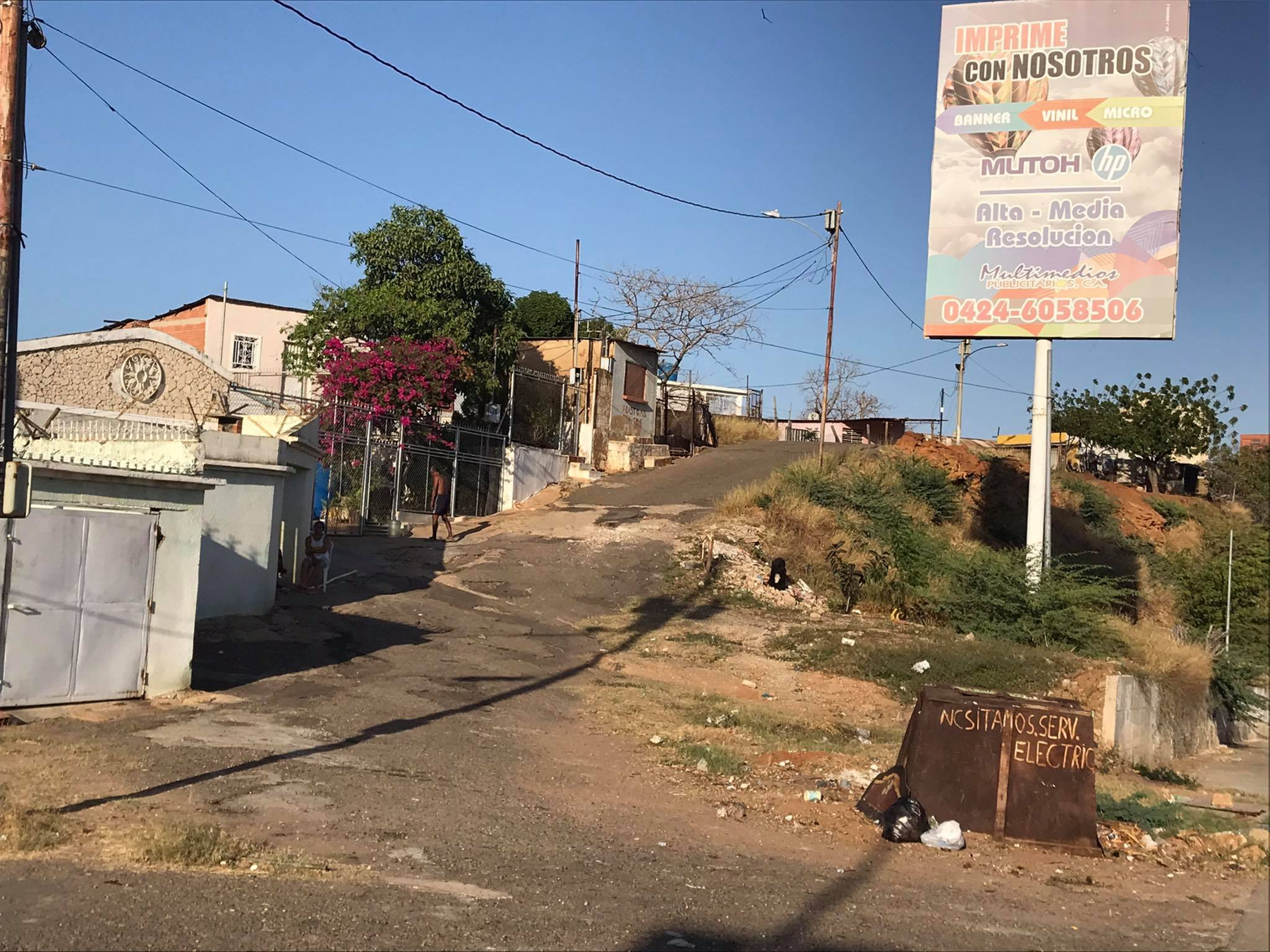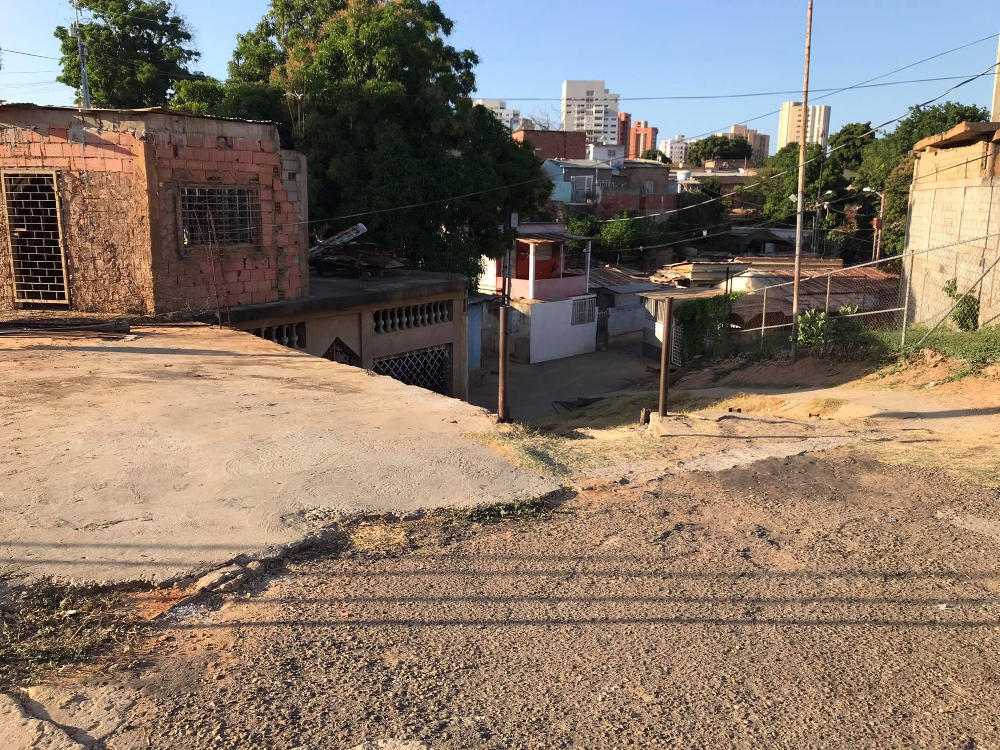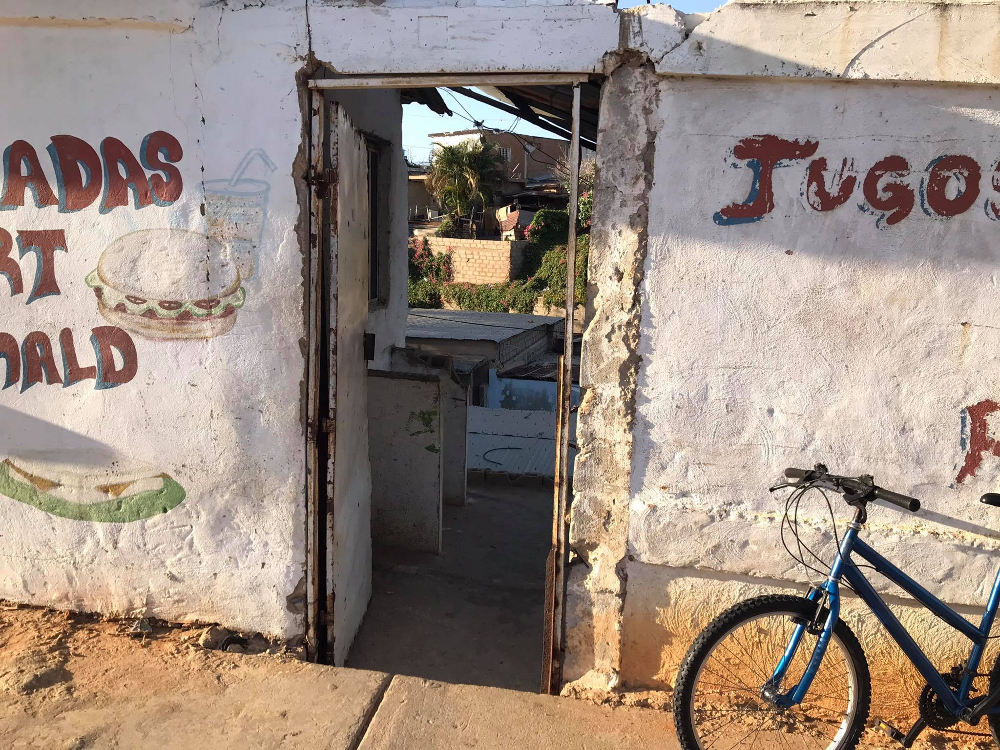I have lived in Maracaibo all my life. For many, the way of life here is one of simply trying to survive. Political repression and hyperinflation are the norm. For a few of us, heroin used to be the norm too. But while the country’s economic crisis grows more visible every day, heroin is on the brink of disappearing. The people who use it seem to be disappearing, too.
Maracaibo, Venezuela’s second-largest city, isn’t far from the Colombian border. In my heyday, starting in the mid-’90s, there were four or five different places you could go to buy heroin. Today, there is only one left. Head to the Cerros de Marin sector—not far from downtown—and walk to El Milagro Avenue at the end of 77th Street.
Maracaibo is at sea level for the most part, so it’s always hot and humid. Since we have almost no elevation, it feels poetic that the last place in the city where you can buy heroin is surrounded by foothills. It had been five years since my last journey there—since I stopped using. I wanted to go back. Not to buy, but to see what had changed.
Chicha, the lady who does the actual selling, received me like a prodigal son.
I was greeted warmly by neighbors—friendly acquaintances from my former life, surprised to see me. Chicha, the lady who does the actual selling, received me like a prodigal son. Perhaps a mixture of sincere tenderness and the prospect of regaining a formerly superb client.

Now in her early 60s, Chicha’s eyes watered when she spoke about her daughter and grandchildren who had migrated to Colombia. I had known them all well. Now, she’s in a house too big for the few family members who are left. It’s an uncommon burden in a place where most houses are crowded with families too poor to leave.
Chicha confided that business is not booming. Where she’d once had dozens of regulars, only six or seven remain—in a city with a population of more than 1.5 million.
In recent years, as hyperinflation worsened and job opportunities dried up, the majority of her former customers have emigrated in search of a better life. While there aren’t really any credible statistics, to me emigration feels like the main explanation for how the city’s heroin-using population has been whittled down to almost nothing. When someone who hasn’t seen me since my using days bumps into me on the street, the most common thing they say to me is, “I thought you left the country.”
Heroin was always more expensive and less readily available than many other state-banned drugs.
A few of the former heroin users who remain were probably forced into abstinence. Others have shifted to substances like bazuco or crack, which have remained not just cheaper than heroin, but exponentially easier to obtain. Even in better times, heroin was always more expensive and less readily available than many other state-banned drugs. Never that dominant in Maracaibo to begin with, heroin is now disappearing the fastest.
Hyperinflation and Diminishing Returns
Venezuela is enduring its fourth year of hyperinflation, amid a worsening recession. In 2016, when I stopped using, a 0.1 g bag cost 35,000 bolívares. Today, 5 million bolívares.
In US dollars, though, it’s a very different story. While in my day you could get four bags for $12, today you can get four for just $5—that’s what a sorry state the bolívar is in now.
Four bags a day will not hold many long-time users. Eight would be no party, but it wouldn’t be bad—if every day you could keep coming up with the money. A few days before my visit with Chicha, Venezuela increased its minimum wage by nearly 300 percent—from the equivalent of 64 cents per month to $2.40 per month.
The value of the bolívar is so ludicrously low that even a huge wad of bills is mostly worthless, unless of course they’re USD. Most Venezuelans who need to buy anything these days, including Chica’s heroin, use wire transfers in bolivares of whatever that day’s equivalent is in USD.

Chicha may be the only access point for retail heroin in Maracaibo, but she’s not the one making the profits. She is, in fact, dramatically underpaid.
Chicha’s son Enrique and daughter-in-law Ana live on a small potato farm in an Andes state about six hours away. Chicha’s customers haven’t seen them in years, but they’re the ones pulling the strings because they’re the ones with the contacts; Chicha just handles the retail end. She’s done this for the past eight years, though she’s been in the business in one way or another for decades.
Customers transfer the money to Ana, texting or calling her at the mercy of power outages or slow internet, and then wait for the notoriously unreliable Ana to greenlight the transaction. Chicha cannot hand over the bags until Ana gives the go-ahead. Even if Venezuela didn’t already have the worst internet service in the region, most of Chicha’s customers don’t have reliable access to smartphones. Nor, by the way, does Chicha. The process can take several hours.
“More than once she’s been tricked by someone who swears they already cleared everything with Ana.”
Chicha’s customers are technically allowed to pay in cash USD, rather than wire bolívares to Ana. But even as the US dollar becomes an increasingly common currency in Venezuela, it’s very hard for most people to find the small bills—$1 and $5—needed to buy heroin.
It’s easier if you have a US bank account, but few if any of Chicha’s customers are so lucky. Buying USD bills on the illicit market can be burdensome. Converting on-hand bolívares can be expensive. The end result is that Ana’s convoluted and erratic wire transfer system is, for most remaining customers, the only viable option.
Chicha told me that she often fronts her dope-sick customers because she sees the desperation in their eyes. But more than once she’s been tricked by someone who swears they already cleared everything with Ana, and is later screamed at by Ana and Enrique over the phone. “All of them have fucked me,” Chicha said of her customers.
In Maracaibo, like pretty much anywhere else in the world, people who use drugs can often bring their sellers personal items, or merchandise they’ve stolen or pawned, to offer in trade. But while here this works for acquiring other drugs like bazuco, it does not work for heroin.
I used to be able to pay all my heroin sellers with food from home—including Enrique and Ana, back when they lived in Maracaibo. But now trades are worthless to them, since they live hours away. Rice or flour or rum wouldn’t be worthless to Chicha, but she can’t accept such offers—it’s not up to her.
At one point during our conversation, I accompanied Chicha to a road near her house. Along with several neighbors, she was waiting for a water truck that was supposed to come through. Their zone of the city had been without running water for months, and people had begun building makeshift roadblocks to force passing water trucks to stop, whereupon they’d hold them up Wild West-style.
I had given Chicha a small bar of chocolate when I greeted her. After a while, I jokingly said, “Next time instead of chocolate I’ll bring you some water.”
As I was leaving her I ran into Humberto, one of the last heroin users I know of in the city. He recognized me from the old days but, still trying to hide his addiction, said: “You didn’t see me here.”
All I could think was, “No one sees you. No one sees you at all.”
Photographs courtesy of Antonio Matheus Suárez





Show Comments